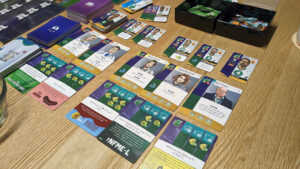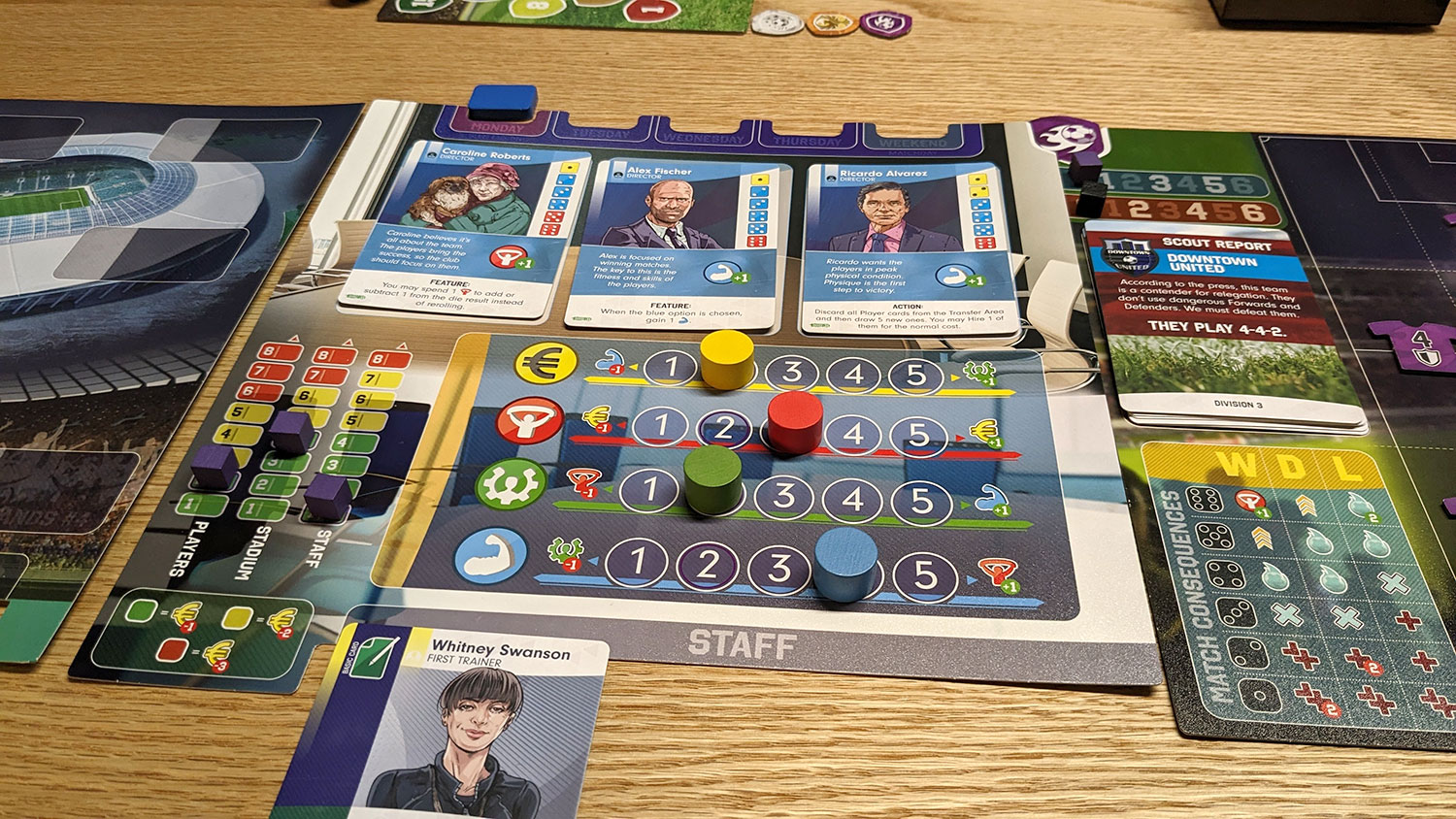 After this year’s FIFA World Cup, I found myself in a familiar position: energized by watching football (FYI, I will be referring to soccer as football throughout, don’t @ me), wishing it was a bigger part of my life. But where in previous years, that fleeting feeling of longing would quickly subside/be waylaid by day-to-day life, this time, something lingered. I made the active decision that this would be the year that I got into the English Premier League, that I started paying attention in a more serious way to the world’s most popular sport.
After this year’s FIFA World Cup, I found myself in a familiar position: energized by watching football (FYI, I will be referring to soccer as football throughout, don’t @ me), wishing it was a bigger part of my life. But where in previous years, that fleeting feeling of longing would quickly subside/be waylaid by day-to-day life, this time, something lingered. I made the active decision that this would be the year that I got into the English Premier League, that I started paying attention in a more serious way to the world’s most popular sport.
And you know what? It stuck. I’m now fully obsessed. But beyond the beautiful game, I love the drama of leagues and their destinies, the players and their advancement, and the teams and their rise and fall. I mean, imagine an American sports team sucking so bad that they get relegated to a minor league. That’s drama, people. And so when the opportunity to play and review the accurately, if moronically, titled Eleven: Football Manager Board Game came up for grabs, I was fully in it. I says to Tony, I says, “mate, it’s meant to be, init?” So, will Eleven win the league and a permanent spot on my shelf, or will it suffer humiliating relegation to my sell pile?
Gameplay Overview:
Eleven: Football Manager Board Game (to be referred to henceforth simply as Eleven) is a 1-4 player, economic action selection, open drafting game with a fair spot of luck involved The game will run you between 1-4 hours, heavily dependant on player count. The game is played over six rounds, each round representing a week in the league and itself broken up into 5 days (Monday through Thursday and then “the weekend”/match day).

Monday is unique to the rest of the week, as it primarily focuses on front-office activities. Resources are replenished based on each club’s income, and then each manager draws an event card for their respective clubs that will prompt a board of directors vote. This involves a die roll, and depending on the makeup of your board and how they are inclined to vote, it may lead to good results or a big inconvenience that your club has to contend with for this week.
The next three days comprise the nuts and bolts of preparing your team for this weekend’s matchup. This is done through a traditional action selection system, where each player gets one main action, and can potentially trigger actions on cards in their tableau if they have the resources for it. These main actions include buying a player, selling a player, hiring staff (such as a trainer, an agent, a scout, etc.), bringing on a sponsor, building out your stadium, or using a card ability. Card abilities can also act as bonus actions as well if paid for with the “operations” resource.

Finally, there’s match day. This is where your club is pitted against an NPC (non-player club) for the week’s match. Your opponent is represented by a card only giving you partial information on the side you can view throughout the week. The card will show you your opponent’s formation (These are a series of numbers that explain how the defenders, midfielders, and forwards are accounted for. ex. 4-3-3; 4-3-2-1, etc.), as well as offer up a scouting report giving you additional limited information (e.g., this team has a formidable left wing forward; this team is weak on the right side, etc.).
Based on that information, you decide which players you’ll have suit up and where to position them. You’ll also play one of your tactics cards to decide your team’s formation. You may have more than one of these, and some have additional powers you can execute after the opponent’s team is fully revealed. You’ll then flip the opponent card, revealing how they’ve allocated their players and what those players’ offensive powers are, and based on that, figure out the score of the match. Once that’s determined, you’ll either go up on the league table (that’s the British term for the league standings) with a win or draw, or you’ll stay where you are with a loss. In addition, you may suffer some additional consequences, such as injuries or suspensions for your players. You then reset and get ready for next week.
Once six weeks have transpired, you’ll add up points for various staff members (a little set-collection element wedged in there, just for fun), your club’s final position on the league table, and any points gained from stadium improvements, and the highest score wins the game. In a solo game, Eleven provides a nice batch of narrative scenarios where your club’s goals for victory may differ, and your success is rated against a scoring spectrum, but the gist is roughly the same.

Game Experience:
Playing Eleven is undoubtedly an enjoyable experience. The question is, for how long does it remain enjoyable? As I hinted at the very beginning of the gameplay section, game length is very dependent on player count. As a solo game, Eleven sings. I’m not even really a solo gamer, I would almost never choose to play a board game by myself instead of reading a book, catching up on my favorite TV show, or playing a video game. But I will say, I did enjoy soloing this game, and it almost felt like its natural state. I enjoyed hiring new staff members, buying unproven young talent, and then training them into fully developed superstars. I enjoyed deciding if I wanted to bring a diaper company on as my sponsor, and whether I should put their logo on my jerseys for a bigger payout or just give them a billboard instead. Eleven is very much a solid multiplayer solitaire game, which explains why the game works so well as an actual solo game.

I ended up playing the game at three player counts: one, two, and three. After playing it at three, I realized I had zero desire to play it at four. The three-player game, without a teach, was solidly a 3.5-4 hour experience. We are entering very meaty Euro territory, from a time-commitment perspective, maybe even Trickerion territory.
Speaking of Trickerion, I actually found a few similarities between the two games worth mentioning, other than their similar lengths. Both are fairly fiddly games, with a lot of little chits and cardboard components. Both have an action selection phase where people build their infrastructure and collect resources. Both end each round with a performance of sorts. And finally, both, in my opinion, really successfully convey their themes. The question for me is, would I choose Eleven over Trickerion when considering how to spend four hours?

I would likely not, but one of my friends who played in the three-player game said he would, and he knows nothing about football. Which is another point worth mentioning: You do not need to know anything about football to enjoy this game. This was surprising to me, because the theme comes through so strongly. When we played the terms or concepts that are now ingrained within me, such as tables and scoring, tactical orientations, and buying and selling players, did not trip up my non-football-watching friends. Who knows, maybe getting your non-football-watching gamer friends to play this could even spark an interest in the sport.
A few critiques are worth mentioning. Tactics cards are crucial to winning matches. Each player starts with only one and there are not enough ways to acquire more. Some staff cards offer the ability to get more tactics cards, but if those cards don’t come out, it can be quite difficult to play an appropriate formation against another team, and you may not have the advantage of being able to play a second tactics card for its unique power.

Additionally, a few production decisions hurt the game, in my opinion. Moving opponents’ club shields on the league table was annoying and fiddly. The cards representing the opponents you play against didn’t match the color of the shields, so it was unnecessarily confusing when you were trying to find the correct shield to move up the table.
Additionally, while the player mats representing your stadium, the pitch, and the managerial offices are nice, it would have been nicer if they were made out of cardboard rather than thin plastic sheets. It just led to some slipping and sliding that wouldn’t have happened if the player mats were instead player boards. And while we’re talking about these player mats, let’s address the elephant in the room: and by that, I mean the table presence of this game is enormous like a damn elephant. I play a lot of Twilight Imperium, which is a world-renowned table hog. I more easily fit six players for Twilight Imperium than I would have for a four-player game of Eleven. The three-player game I set up took up my entire 6-by-4-foot table.
Final Thoughts:
Overall, Eleven is a solid team-manager simulator. It sings as a one-player game and works well as a two-player game. Beyond that, the game overstays its welcome just a tad at three, and I wouldn’t dream of playing it four. The managerial engine building (hiring staff, buying and training players, deciding on sponsors, and all that) is a hoot, but the actual match day element is a bit too fiddly. Football fans will get a kick out of it, and even those who don’t love football but do like mid-weight Euros won’t relegate this game. And no, I won’t apologize for my premier puns.
Final Score: 3.5 stars – A solid football manager simulator that does a nice job of delivering on its theme. It’s best at one or two players, but too long at three and four.
 Hits:
Hits:
• Delivers on theme
• Action selection is fun
• Don’t need to know football to enjoy
• Training players is fun
Misses:
• Too long at three and four players
• A bit too fiddly, especially for the match day
• A few subpar production decisions
• Table hog





















